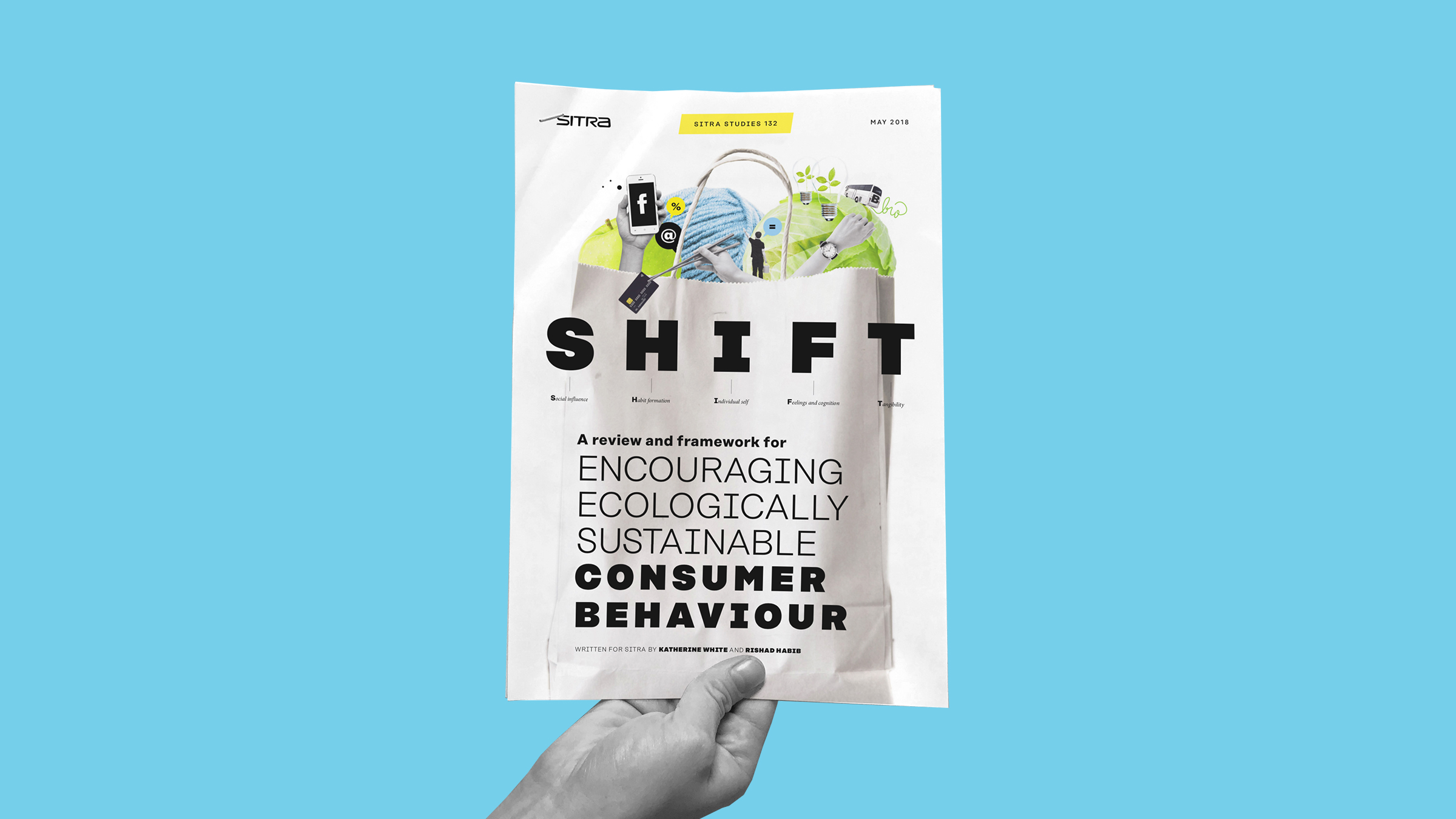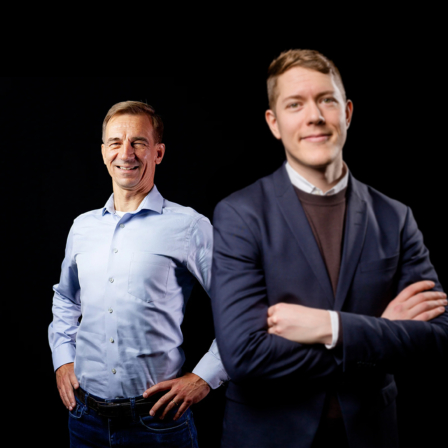The SHIFT marketing framework is a set of tools that practitioners can use to analyse their consumer communication. It provides companies and marketers with the means to better understand the obstacles affecting their potential customers’ choices, and to inform consumers about the added value offered by their own products or services.
“Green choices are not always easy. As consumers, we may need more information on the available options, or perhaps we do not want to come across as fanatical tree-huggers,” says Sitra’s Senior Lead Matti Aistrich. “We may doubt the quality of the new service, or our willpower is not strong enough to get rid of bad habits. The SHIFT model helps marketers tackle these challenges.”
The marketing framework summarises the findings from a consumer survey into five key points, which help businesses understand factors affecting consumer choices and find appropriate methods of communication.
The framework focuses on the following aspects linked with consumer choices: Social influence, Habit formation, Individual self, Feelings and cognition, and Tangibility. The SHIFT framework takes its name from these key aspects.
“The five key principles summarised in the SHIFT framework present the best ways to affect consumer behaviour and make it sustainable. Many great challenges of our time are related to the choices we make as consumers: how, what, why and how much we consume,” says University of British Columbia Professor Katherine White, who developed the framework.
“The model was developed because of the challenges related to the promotion of sustainable behaviour. Researchers often notice a gap between consumer attitudes and behaviour: consumers say that they are concerned about sustainability, yet this is not always reflected in their behaviour.”
Professor White developed the framework with her doctoral student Rishad Habib. The SHIFT framework is based on a large survey covering over 350 scientific articles, assessing what is genuinely known about sustainable consumption in consumer research.
The SHIFT framework includes a practical workbook to kick-start the process, as well as an extensive report presenting the different sections of the framework in detail.
“Sitra wants to offer organisations a tool which they can use to help consumers live more sustainably. Sitra’s Sustainable everyday life project encourages Finns to make sustainable everyday choices and helps businesses develop competitive everyday products and services,” says Matti Aistrich.
Pirjo Laaksonen, Dean of the University of Vaasa, says “the workbook summarises the key concepts of consumer research very well and provides a clear process diagram on how to proceed. This requires that the companies have a clear vision and understanding of their customers. We need scientific information instead of hearsay.”
Head of Consumer Excellence, Satu Kalliokulju, who is responsible for, among other things, the Fiskars Group’s consumer experiences, has coached the workbook from a business perspective: “A thorough consumer research analysis from a practical point of view is a good subject, and the SHIFT framework has great capacity to influence matters. Its use requires a strong understanding of one’s own customers.”
Additional information
- SHIFT report: SHIFT – A review and framework for encouraging sustainable consumer behaviour, PDF
- SHIFT workbook: SHIFT – Sustainable consumer behaviour change workbook, PDF
















Recommended
Have some more.